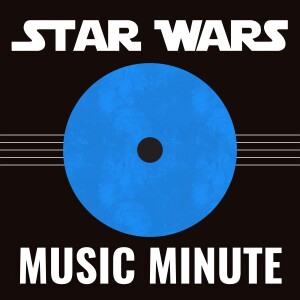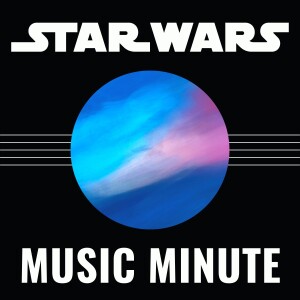
- Podcast Features
-
Monetization
-
Ads Marketplace
Join Ads Marketplace to earn through podcast sponsorships.
-
PodAds
Manage your ads with dynamic ad insertion capability.
-
Apple Podcasts Subscriptions Integration
Monetize with Apple Podcasts Subscriptions via Podbean.
-
Live Streaming
Earn rewards and recurring income from Fan Club membership.
-
Ads Marketplace
- Podbean App
-
Help and Support
-
Help Center
Get the answers and support you need.
-
Podbean Academy
Resources and guides to launch, grow, and monetize podcast.
-
Podbean Blog
Stay updated with the latest podcasting tips and trends.
-
What’s New
Check out our newest and recently released features!
-
Podcasting Smarter
Podcast interviews, best practices, and helpful tips.
-
Help Center
-
Popular Topics
-
How to Start a Podcast
The step-by-step guide to start your own podcast.
-
How to Start a Live Podcast
Create the best live podcast and engage your audience.
-
How to Monetize a Podcast
Tips on making the decision to monetize your podcast.
-
How to Promote Your Podcast
The best ways to get more eyes and ears on your podcast.
-
Podcast Advertising 101
Everything you need to know about podcast advertising.
-
Mobile Podcast Recording Guide
The ultimate guide to recording a podcast on your phone.
-
How to Use Group Recording
Steps to set up and use group recording in the Podbean app.
-
How to Start a Podcast
-
Podcasting
- Podcast Features
-
Monetization
-
Ads Marketplace
Join Ads Marketplace to earn through podcast sponsorships.
-
PodAds
Manage your ads with dynamic ad insertion capability.
-
Apple Podcasts Subscriptions Integration
Monetize with Apple Podcasts Subscriptions via Podbean.
-
Live Streaming
Earn rewards and recurring income from Fan Club membership.
-
Ads Marketplace
- Podbean App
- Advertisers
- Enterprise
- Pricing
-
Resources
-
Help and Support
-
Help Center
Get the answers and support you need.
-
Podbean Academy
Resources and guides to launch, grow, and monetize podcast.
-
Podbean Blog
Stay updated with the latest podcasting tips and trends.
-
What’s New
Check out our newest and recently released features!
-
Podcasting Smarter
Podcast interviews, best practices, and helpful tips.
-
Help Center
-
Popular Topics
-
How to Start a Podcast
The step-by-step guide to start your own podcast.
-
How to Start a Live Podcast
Create the best live podcast and engage your audience.
-
How to Monetize a Podcast
Tips on making the decision to monetize your podcast.
-
How to Promote Your Podcast
The best ways to get more eyes and ears on your podcast.
-
Podcast Advertising 101
Everything you need to know about podcast advertising.
-
Mobile Podcast Recording Guide
The ultimate guide to recording a podcast on your phone.
-
How to Use Group Recording
Steps to set up and use group recording in the Podbean app.
-
How to Start a Podcast
-
Help and Support
- Discover

What happens to the narrative when an iconic theme like the "Imperial March" becomes diegetic? What does that do to the audience? Samantha Tripp is here to help us explore this fascinating topic today. We discuss Solo, Rebels, the British Empire, the efficacy of propaganda music, and other bits and pieces from minutes 11-15 of Solo: A Star Wars Story.
Timestamps:
- 00:00 - Hello there!
- 01:49 - Characteristics of the diegetic Imperial March in Solo ("Empire Recruitment")
- 18:25 - John Powell's own words about his diegeticization of the Imperial March.
- 26:30 - Comparing this to Star Wars: Rebels ("Glory of the Empire")
- 35:35 - Could we reverse-engineer Williams's original "Imperial March" by taking this Edwardian Pax-Britannica-style version and putting it through a filter of chromaticism?
- 45:01 - Does the propaganda do its job?
- 50:49 - David Glen Russell possibly wrote the "Glory of the Empire" theme for Rebels.
- 1:02:40 - SWMM Questionnaire
Things Mentioned:
- Star Wars Rebels Season 1 - "Glory of the Empire" - https://youtu.be/TouCl6yp13A
- Elgar - Pomp and Circumstance March No. 1 (Land of Hope and Glory) - https://youtu.be/Vvgl_2JRIUs
- Walton - Orb and Sceptre Coronation March - https://youtu.be/Qir5ndIlsJ8
- Walton: Crown Imperial: A Coronation March - https://youtu.be/fraKCzza0To
- Resistance Broadcast interview with John Powell: https://youtu.be/Ujm6aLuN7yQ
- Another example of a patriotic march but for the USA: The Stars and Stripes Forever by John Philip Sousa - "The President's Own" U.S. Marine Band - https://youtu.be/a-7XWhyvIpE
Themes:
- 4. Han & Q'ira
- 2a. Young Han Solo (Searching, comp. JW)
- 3. Secrets
- 10a. Imperial March (Theme)
- 1. Young Han Solo (Heroic, comp. JW)
- 5. The Gang
- Note: I use the theme names and numbers established in Frank Lehman's Complete Catalogue of the Musical Themes of Star Wars. You can download it free at his website: https://franklehman.com/starwars/.
Soundtrack:
- "Spaceport" / "Spaceport (1M6-7)"
- "Gonna Be a Pilot (1M8)"
- "Empire Recruitment (1M9)"
- "Mimban Battle (1M10A-B)"
---------
STAR WARS MUSIC MINUTE QUESTIONNAIRE:
1. In exactly 3 words, what does Star Wars sound like?
- Powerful, evocative, grandiose.
2. What's something related to Star Wars music or sound that you want to learn more about?
- Musician stories from recording the sequel films, particularly The Rise of Skywalker. What is it like sitting in the orchestra, hearing those themes, and trying to make connections in the film ahead of time?
3. What's a score or soundtrack you're fond of besides anything Star Wars?
- The Shape of Water (composed by Alexandre Desplat)
Bonus Question: What would you encourage listeners to pay extra attention to on their next viewing of Solo: A Star Wars Story?
- The juxtaposition between the Imperial March in the advertisement versus the battle. Also, the way that John Powell's score creates and plays with tension as Han and Qi'ra are trying to make their way through the barrier, then later on, as Han is hiding. Listen for the string ostinati, etc.
---------
Samantha Tripp:
- YouTube channel: https://www.youtube.com/channel/UC3hiwYy5oTsb50N-kxRhonA
--------
If you enjoyed this episode and want to show extra appreciation, feel free to buy me a coffee and shout out the guest! https://buymeacoffee.com/starwarsmusmin
If you want to support the show, consider becoming a patron! https://patreon.com/chrysanthetan
Leave a voice message, and I might play it on the show... https://starwarsmusicminute.com/comlink
Where else to find SWMM:
- Spotify: https://smarturl.it/swmm-spotify
- Apple Podcasts: https://smarturl.it/swmm-apple
- YouTube: https://youtube.com/starwarsmusicminute
- TikTok: https://www.tiktok.com/@starwarsmusicminute?
- Twitter: https://twitter.com/StarWarsMusMin
- Instagram: https://instagram.com/starwarsmusicminute
- Email: podcast@starwarsmusicminute.com
For those curious, here is the full abstract for the talk Samantha is preparing. The abstract was co-written by Samantha Tripp and her advisor Frank Lehman.
The Suns Never Set on the Galactic Empire: Recursive References and In-Universe Instances of “The Imperial March”
Allowing a non-diegetic theme to slip into the realm of source music is nothing new: ever since Siegfried tooted his own horn(motif), composers of narrative multimedia have found ways for underscore to peek into the diegetic world. But while such moments of diegeticization provide yet another example of the eminently-permeable “fantastical gap,” their ramifications often run deeper than a blurring of narrational levels (Stilwell 2004, Heldt 2013). Because when fictional characters hear their own music, it can provoke a rehearing for the audience. Indeed, the recontextualized “source” of such underscore-as-source-music may turn out to reside as much in nonfictional reality as some fictional diegesis.
This presentation explores the implications of rehearing an iconic theme—John Williams’ “Imperial March”—through two in-universe instances: David Glen Russell’s “Empire Day” from Rebels (2014), and John Powell’s “Empire Recruitment” from Solo (2018). These cues both reimagine the minor-mode leitmotif as major-mode musical propaganda. Through close analysis, we demonstrate two contrasting approaches to diegeticization: parodic hyper-chromaticization of the theme’s non-functional tonality in Rebels’ ceremonial parade; and nostalgic diatonic hyper-correction for Solo’s military-recruitment ad. By cannily channeling the nobilmente style of Elgar/Walton, these cues resurface a subtextual “source” of Williams’s theme—Edwardian Pax-Britannica style nationalism—and with it the complex relation of imperial-versus-revolutionary politics in Star Wars generally (Buhler 2002, Lerner 2004). We conclude by situating the “Imperial March” at one further level of remove: out of the meticulously controlled diegetic canon of Disney-era Star Wars and into the real world of contemporary protest music.
More Episodes
 2023-02-07
2023-02-07
 111
111
 2023-01-02
2023-01-02
 100
100
 2022-12-25
2022-12-25
 90
90
 2022-11-21
2022-11-21
 112
112
 2022-11-14
2022-11-14
 179
179
 2022-08-26
2022-08-26
 55
55
Create your
podcast in
minutes
- Full-featured podcast site
- Unlimited storage and bandwidth
- Comprehensive podcast stats
- Distribute to Apple Podcasts, Spotify, and more
- Make money with your podcast
It is Free
- Privacy Policy
- Cookie Policy
- Terms of Use
- Consent Preferences
- Copyright © 2015-2025 Podbean.com




